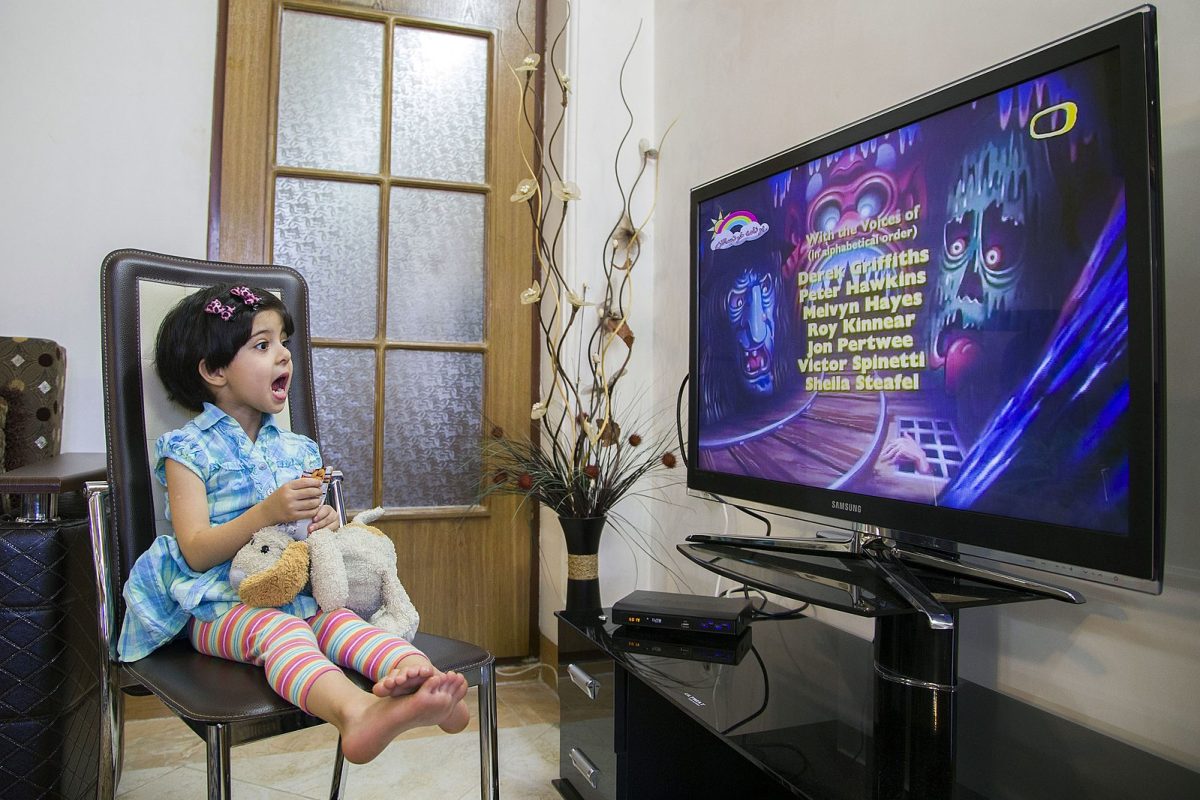The advancement of technology is exponentially growing. Within the span of a century, we’ve gone from messaging pigeons and color television to developing synthetic human consciousness. While that last one may be a stretch, there is no doubt that technology has grown so fast that we have no idea how to handle it. For example, limiting phone usage has long been a topic of discussion among parenting circles, but a 2021 study reported that 88 percent of teens own a smartphone, and that almost half of all tweens (eight-12-year-olds) own one.
As a 19-year-old, I still remember setting up school Chromebooks for the first time in fourth grade, and since then I’ve needed the internet for every single class. It’s hard for me to remember a time when the internet wasn’t part of my life. And for children born after me, screens are introduced earlier and earlier.
Early introduction to technology is not necessarily a bad thing; any kind of technology that’s effective at teaching young students should be implemented. But the internet is a double-edged sword, perhaps the sharpest humanity has ever made. With technology’s unmatched upsides of nearly constant access to information, communication and culture, there also comes grave downsides of the misinformation, hatred and addiction that also develops from technology.
One report found that the average screen time between all devices for 8–12-year-olds was five hours and 33 minutes, while teenagers averaged eight hours and 39 minutes. These statistics do not account for the time spent on screens for school related reasons either. Between tweens (8-12 years) and teens, the two activities where the most time is spent are watching TV/videos and gaming, with social media closely following within the teen demographic.
Most of tween and teens’ technological activity is devoted to entertainment, given that YouTube, Snapchat, TikTok and Instagram are among the most popular sites for teens. One similarity between all of these sites if their production of short-form videos for entertainment. A Harvard Medical School article explains how dopamine is a main driver of our behavior, and social media businesses leverage this to get us addicted to their platforms. Our dopamine responses to social media produce the same chemical reactions as caffeine, nicotine and cocaine. While no parent is giving their child cigarettes and cocaine, social media and other forms of technological content (such as video games) affect the brain in similar ways, albeit to a lesser extent.
Addiction to technology is only one part of the problem. As time spent online increases, our sense of reality becomes increasingly warped. The internet is a place where anyone can post anything, and we are reaching records of disinformation, questionable sources and echo chambers. Among people under 30, almost half of them get their information from social media, and 55 percent of all American adults get at least some news from social media. While print or cable TV generally have credibility, news coming from social media could be from anywhere. For the most part, anyone can post anything on social media without risking serious repercussions, which significantly increases the possibility that misinformation will reach the ears of impressionable children and alter their sense of reality.
With addiction and a reliance on technology with no sense of media literacy, kids are growing up with many threats to their mental health and intelligence. These cheap sources of entertainment replace wholesome entertainment sources such as books, movies and even simpler things like playing outside. It’s an issue so widespread and dangerous that it should be declared a national health emergency.
According to the Kaiser Family Foundation, federal data reveals that young people have higher rates of anxiety and depression symptoms, with 49.9 percent of people ages 18-24 experiencing symptoms of anxiety and/or depression in the past year. Compounding these statistics is the reality that 90 percent of American adults believe a mental health crisis is occurring in America right now. Additionally, IQ scores in three out of four areas have dropped between 2006 and 2018, and average test scores for 13-year-olds are the lowest they’ve been in decades. These statistics could be argued as positives; the decrease in mental health stigma and increase in awareness about mental health in younger generations is a good development, and IQ is a contested measure of intelligence. However, these statistics demonstrate that there is a correlation between the amount of time spent on the internet during childhood and levels of anxiety, depression and intelligence.
The internet can also be a beautiful place of community and cooperation. Between shared interests, wholesome content and innocent funny videos, there are a lot of bright parts to the online world. It’s also ridiculous to solely blame the internet for these statistics, when we are living through the aftermath of a pandemic, a tumultuous political atmosphere and world affairs are looking grim. Perhaps relying less on the internet for a source of entertainment would increase our national mental health and intelligence and allow us to be better equipped to take on today’s challenges. A national issue necessitates a national response; the government needs to step up on policy to prevent bad parenting from disadvantaging our children.
William Fry can be reached at [email protected]







Julia Walton • Nov 28, 2023 at 9:09 pm
Amazingly written Will!!!